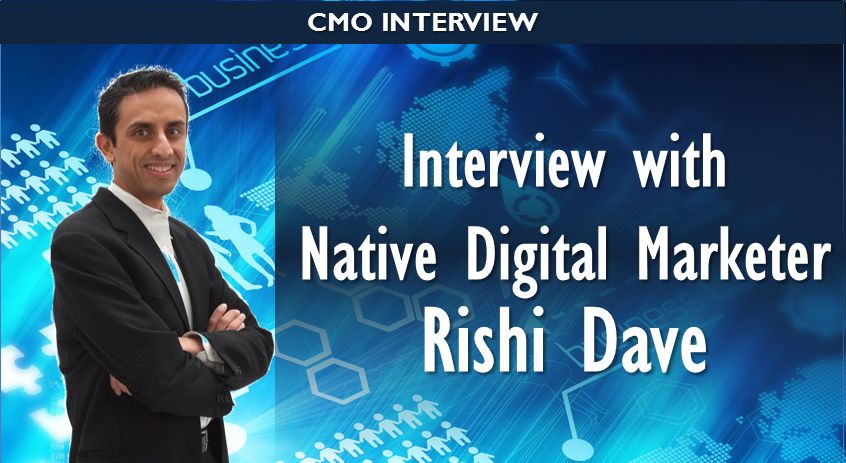Today’s interview is with Rishi Dave, CMO at Dun & Bradstreet and former Executive Director of Digital Marketing at Dell. Rishi was named a Top Digital Marketer twice (2013 & 2012) by BtoB Magazine. I had the opportunity to meet Rishi as a co-panelist at the Brand Innovator’s Forum in Austin. Let’s get started.
1.. What company is an example of good marketing today? Who do you admire?
Hubspot has done a great job of scaling the content-led inbound model and proving its economics. They practice what they preach and use what they sell.
2. What is your marketing superpower, the most important skill that makes you a great marketer?
I am natively digital and not encumbered by the old style of marketing.
3. What interesting book have you read recently?
I recently read Essential Scrum by Kenneth Rubin. Scrum has historically been a methodology used for software product development to challenge the traditional approach. Scrum is increasingly being implemented in marketing organizations to help marketers evolve traditional marketing operations thinking in a rapidly changing digital environment. This classic book forced me to think about marketing execution in a different way.
Gerardo> This is what many are calling Agile Marketing. It is very interesting how Marketing is evolving with best practices from software engineering: first with Growth Hacking and now Agile Marketing.
4. What good aspect of basic marketing have marketers neglected in recent years?
I feel that in the quest to be more modern, marketers have lost site of the basics. For example, it is not just about the data and technology. It is about the way you use it to create great experiences for your customers so that you can establish long term relationships with them.
Today, most marketers use data, content, and technology to do the same things that they were doing before, only faster and more efficiently.
In reality, they need to start with what it takes today to build a great relationship with their customers on the customer’s terms and work backward from there.
5. What skills will marketers will need in the future? How do you stay sharp?
- Analytics
- Technology
- Content Marketing
You have to read voraciously to stay sharp and constantly be talking to vendors and marketers who understand modern marketing. A good marketer is constantly on the web reading blogs and social on the latest trends and technologies and constantly talking to vendors and agencies.
6. What was the turning point in your career?
Joining Dun & Bradstreet as the Chief Marketing Officer has been a great opportunity for me as a leader. In this role, I own marketing end-to-end allowing me to drive integrated programs across traditional silos. Beyond that, this 173 year old company is going through a transformation led by a CEO that values marketing as an asset to transform the company.
7. How do you increase marketing’s relevance and influence in the organization?
Marketing is valued when its value is revealed by measuring ROI and building predictable revenue.
In today’s digital world, when customers have a problem they don’t contact the sales representative from the brand, they start with search, social, and bloggers. They self-nurture in digital which means that marketers must drive the experience that sales used to own. When marketers demonstrate how they are doing that, and tie to ROI, they gain influence.
8. What blog would you recommend other marketers should follow?
Moz.com, Hubspot, Chief Martec, Social Media Today, Lifehacker, and Harvard Business Review are among the top for me.
9. What experience in your past has best prepared you to be a marketing expert?
My degree in engineering and experience at Bain & Company grounded me in analytics and modeling, working in Silicon Valley taught me how to use technology to drive results, and my love of reading science fiction ignited my love of content.
10. How marketing leaders can be better mentors and true leaders of their teams?
Marketing leaders must articulate a strong vision that ties to a company’s brand purpose and values and reinforce that every day with employees. Although the marketing world changes all the time, the vision should stay stable and consistent.
Thank you Rishi for taking the time to provide your insight.
Follow Rishi on Twitter @RishiPDave or on his blog at http://www.RishiDave.com , or watch his recent talk at DreamForce: Customer Intelligence in an Inbound Marketing World.

